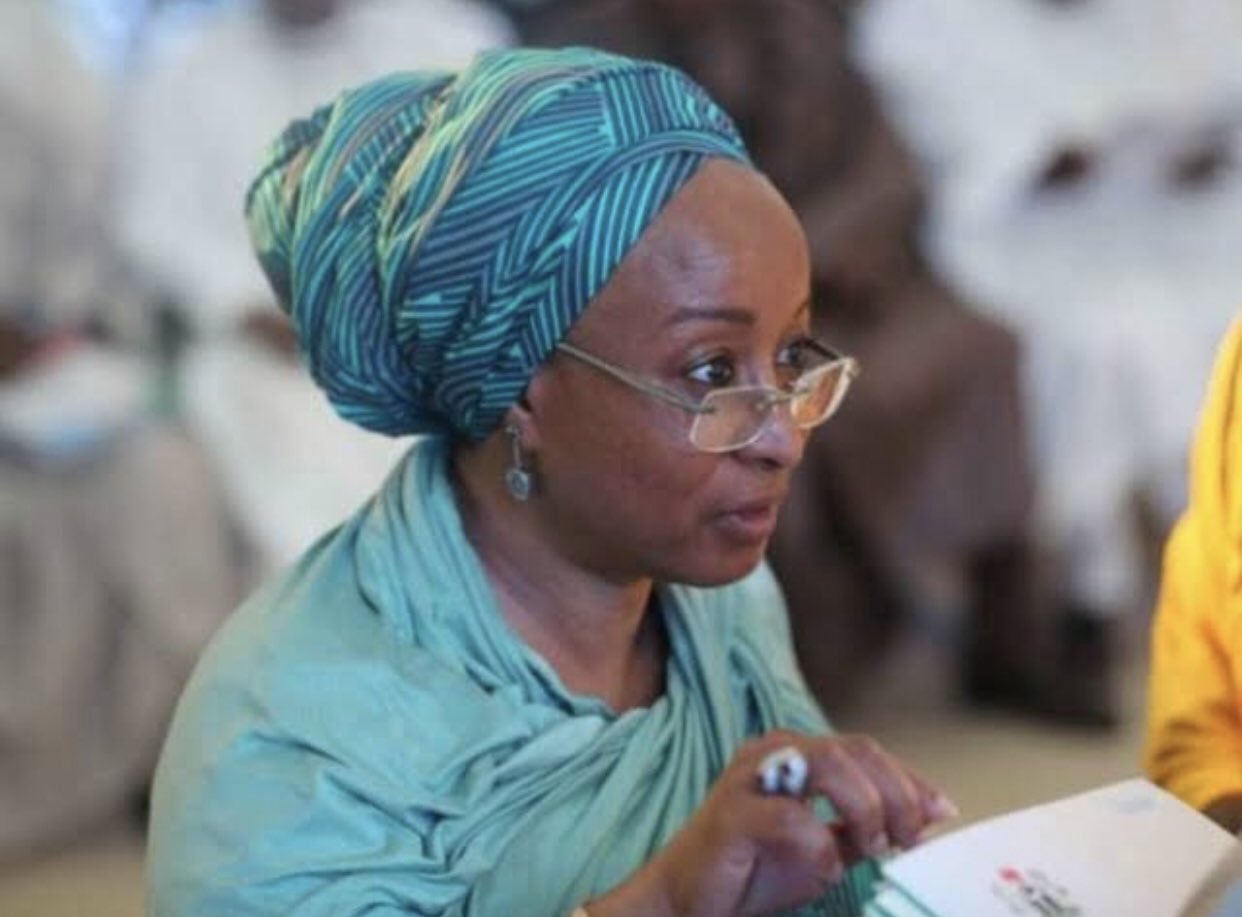
By Justice Bibiye
An interesting aspect of the “Global Village” phenomenon as amplified by advocates of globalisation is that today, there is hardly any Nation of the world that can function in isolation without its activities being followed, observed or scrutinized by close or distant neighbours.
The “speed of light” growth in Information and Communication Technology ICT makes a very large global space look so small, in a manner that captures the thinking of James Hadley Chase in one of his epic fictions “The Gold Fish has no Hiding Place” which envisages a society where virtually everyone literarily knows each other.
This is what the world is fast becoming as human relations and interactions are no longer limited by space, time and boundaries with the advancement of ICT.
It is, therefore, not surprising that a laudable government inspired welfare programme that is transforming the lives of millions of locals across the length and breathe of Nigeria is closely being monitored by several domestic and international bodies, as well as Non Governmental Organizations (NGOs), whose reports on the outcomes of the implementation strategies of the Nigerian government’s social investment schemes have provided the much needed motivation to improve on ongoing efforts for enhanced performance to achieve the set goals.
One of such International NGOs is Schwab foundation, a sister organization of the World Economic Forum, which has not only taken due cognisance of the Nigerian government’s huge investments in social welfarism aimed at fostering financial inclusion, particularly for those down the poverty ladder, it has also gone a step further to lace such efforts with an award of merit, in recognition of the political will demonstrated by the Buhari administration to provide succour for citizens who found themselves below the poverty line.
Mrs Maryam Uwais, who was recently reappointed as the Special Adviser to the President on Social Investments, becomes the proverbial bride, as further enhanced by a legion of multi stakeholder artistry contributions, is now radiating to the admiration of the international community.
She is the global face of the Social Investment Programmes SIPs in Nigeria and her impactful implementation strategies as Head of the National Social Investment Office (NSIO), which coordinates all components of the SIPs, caught the attention of Schwab Foundation, a Swiss-based NGO committed to improving the state of the world. Mrs Uwais was amongst those to receive Schwab Foundation’s prestigious Public Social Intrapreneur Award on 23rd September 2019, in acknowledgment of her numerous contributions towards the achievement of Agenda 2030, including the Sustainable Development Goals SDGs.
With this award, Mrs Uwais joins a global network of over 350 outstanding social innovation models from more than 70 countries worldwide, to thrive in the Schwab Foundation community, an impact-driven global network that focuses on global goals and local impact. Furthermore, awardees of the foundation are fully integrated into the meetings, initiatives and projects of the World Economic Forum. They benefit from peer-to-peer exchanges with one other and meaningfully contribute their expertise to shape global, regional and industry agendas, in close collaboration with other stakeholders of the World Economic Forum.
This latest honour coming from a highly reputed global organization such as the Schwab Foundation, underscores the success story of the Buhari administration’s determination in bridging the huge poverty gap in the country through the various Social Investment programmes. It also justifies the choice of Mrs Uwais, a seasoned lawyer, human rights activist, prolific writer and social crusader, who was brought in by the President, based on merit and competency, to occupy the driver’s seat in the implementation of the Social Investment Programmes.
Mrs Maryam Uwais, was appointed as Special Adviser to the President on Social Investment in 2016, a position which also required her to supervise the National Social Investment Office NSIO, domiciled in the Office of the Vice President, whose direct supervision of the programme inspires greater achievements.
The NSIO, headed by Mrs Uwais since 2016, is the central coordinator of the four major components of the SIPs namely: N-POWER, National Home Grown School Feeding Programme NHGSFP, National Conditional Cash Transfer Programme NCTP and Government Enterprise and Empowerment Programme GEEP.
The job was well defined for a woman who does not only have the capacity and integrity, but also possesses the necessary leadership skills to engineer synergy and engender the necessary team spirit in the successful execution of a highly commendable government initiative that seeks to deliver socio-economic support to disadvantaged Nigerians across the Nation. The milestones so far achieved are also traceable to the “zero tolerance for corruption” stance of Mrs Uwais, who in ensuring that monies released for the various programmes are judiciously utilized, structured the NSIO in a such a way that insulates its processes and procedures from corruption and undue manipulation for selfish gains at Federal level.
The deployment of technology, delegation of responsibility and strict adherence to due process in the award of contracts and execution of projects makes the National Social Investment Programme N-SIP stand out as a model for transparency and accountability, in the implementation of one of the most successful government-driven programmes in the political history of Nigeria. Perhaps, for the first time, award of contracts for a government project are done by a distinctly separate entity, based on merit, just as beneficiaries of the various social intervention programmes are captured after meeting the necessary requirements for enrolment; a marked departure from the past where someone has to know another, who occupies a privileged position before he/she could benefit from such a scheme.
This explains why the outcomes have been impactful as testimonies by the beneficiaries have equally been quite encouraging. For instance, over 540,000 young people are currently benefitting from the N-POWER programme and its sub-components.
In the same vein, the faithful execution of the National Home Grown School feeding programme NHGSFP, is currently changing the face of public primary Education in Nigeria, where nearly 10 million pupils in 32 states across the country are being provided with one nutritious meal per day in school. This is in addition to the development of a community value chain that empowers over a 100 thousand secondary beneficiaries such as cooks and farmers, who supply the raw materials used in preparing the meals served the pupils. The consequence of these efforts is evidenced in the unprecedented rise in school enrolment rates as deaths arising from child malnutrition has reduced drastically.
Indeed, nearly 650,000 poorest households in the country receive N5000 monthly under the National Cash Transfer Programme NCTP. Beyond receiving monthly stipends which gives them a sense of social and economic security, the NCTP beneficiaries are also encouraged and trained by community facilitators to imbibe the culture of savings and investments to become more financially stable and productive. In addition, over 4,500 Cash Transfer Facilitators (to support the beneficiaries in all wards where the service is provided) have been trained and 10,000 Savings groups and cooperatives have been formed. Consequently, these beneficiaries are on record to have saved over N560 million, from which over 18,000 beneficiaries have taken loans to start or improve their businesses. It is noteworthy of mention that less than 1,000 of these beneficiaries have defaulted in repayments.
The Government Enterprise and Empowerment Programme GEEP has touched the lives of 2.5 million petty traders and micro, small and medium enterprises through soft loans under its sub components such as Tradermoni, Marketmoni etc. Transparency and accountability, being the hallmark of these programmes, are evident on the technology platform that consists of all the programmes beneficiaries, with their photographs, trades, profiles and even spaces they occupy in the markets, for tracking and evaluation.
Credit must given to President Muhammadu Buhari GCFR, the Vice President, Professor Yemi Osinbanjo SAN GCON and the leadership of the ruling All Progressives Congress APC for initiating and subsequently implementing the social intervention programmes in fulfilment of a crucial aspect of the party’s manifesto.
Worthy of commendation also, is the selection of a formidable team led by Mrs Maryam Uwais, who has dedicated her time, energy, knowledge and wealth of experience in both public and private practice in a overseeing the implementation of a programme that is improving the economic fortunes of the poorest of the poor in the country.
A seasoned lawyer and human rights activist with over 36 years cognate law practice experience garnered from the Kano State Ministry of Justice, the Nigerian Law Reform Commission, the Central Bank Of Nigeria and law practice, just to mention a few, Mrs Maryam Uwais has a rich resume achieved by sheer dint of hard work, diligence, commitment and relentless crave for excellence in all her endeavors.
Mrs. Uwais was educated at Ahmadu Bello University, Zaria in Nigeria and was called to the Nigerian Bar in 1981. She later obtained a Masters of Law Degree (LLM) in 1985. She was awarded a certificate in Advanced Law Practice and Procedure in 1985 and in Legal Drafting in 1989, from the Nigeria Institute for Advanced Legal Studies.
Mrs. Maryam Uwais, MFR served as a Principal Partner of Wali Uwais & Co, an Abuja-based law firm. Before then, she had served on the Council of the National Human Rights Commission in Nigeria, where she also worked as Special Rapporteur on Child Rights; the Board of the Justice Research Institute, the Kukah Centre as well as the Coalition Against Tobacco, amongst others. She also served on State, Federal and Continental Committees such as The Kano State Almajiri Committee, President Goodluck Johnathan’s Presidential Advisory Council, The Northern Nigeria Governor’s Committee on Reconciliation, Security Healing, as well as the African Committee of Experts on the Rights and Welfare of the Child for a period of 5 years.
She founded the Isa Wali Empowerment Initiative in December 2009, which targets the conditions of women and children in education, healthcare and empowerment.
Maryam Uwais has also worked as a consultant to the Open Society Initiative for West Africa, UNICEF, the World Bank, and DfID. She has written and published several articles on economic and social rights, interfaith dialogue, child justice administration and good governance.
She was, before her current appointment, a Non-Executive Director and Member of Board of Directors of Stanbic IBTC Holdings PLC. She was also a member of the Editorial Board of Thisday newspapers.
AWARDS AND RECOGNITION
• Awarded with the National Honour of Member of the Order of the Federal Republic (MFR) by President Goodluck Johnathan GCFR (2011)
• The Outstanding Leadership Award for contributions to equity, justice and human rights in Nigeria, by the Business and Professional Women in Nigeria Association (2012).
• An award by The Nigerian Human Rights Community in appreciation of contributions as Member of The African Union Committee of Experts on the Rights and Welfare of the Child (2013).
• Selected as one of the five McNulty Prize Laureates at the Aspen Institute, Colorado, following the activities of the Isa Wali Empowerment Initiative (2014).
• Selected as a National Human Rights Commission Awardee for ‘Outstanding Contributions in the Advancement of the Rights of Women and Children in Nigeria (2015).
.Recipients of the Thisday Awards given to women who have distinguished themselves in the service of Nigeria (2012).
Received the Humanitarian of the Year Award from the International Women’s Society (2011).
Publications/Papers/Presentations
Nigeria and indeed the rest of the World cannot afford to stop fetching from the deep fountain of knowledge deposited in Mrs Maryam Uwais, an epitome of intellect, an amiable personality, quintessential legal luminary and public administrator, virtuous woman, faithful wife and loving mother, who sees this latest international recognition (Schwab Foundation Award for Public Social Interpreneur) as a call to greater service to her country and the rest of humanity.
Justice Bibiye is the Communications Manager at the National Social Investment Office NSIO





